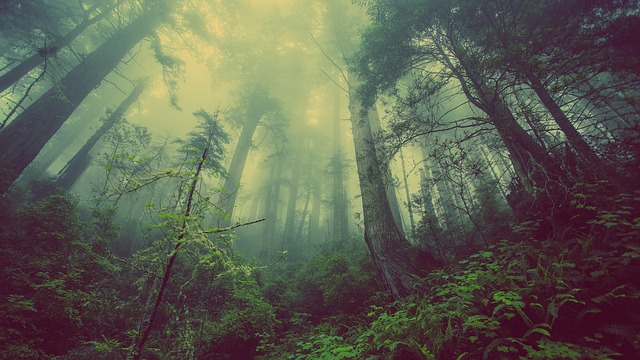
Aldo Leopold’s A Sand County Almanac inspired many environmental readers and writers not only to love the little things in nature but also to do what we can to protect them. I first read it as a young speechwriter for a former U.S. Secretary of the Interior. Leopold’s essay on the extinction of the Passenger Pigeon in 1914 touched me so deeply that I, a nonscientist, took up serious bird-watching and also the study of phylogenetics. Not long after the radio program, “Bird Note,” began broadcasting on Seattle’s NPR station, I suggested the story of the Passenger Pigeon to producers, which lead to a beautiful memorial.
Great nature writing can be a call to arms. After reading A Sand County Almanac, I picked up Desert Solitaire by Edward Abbey. The conclusion to his introduction, written in April 1967, has haunted me ever since:
“Do not jump into your automobile next June and rush out to the canyon country hoping to see some of that which I have attempted to evoke in these pages…you’ve got to get out of the goddamned contraption and walk, better yet crawl, on hands and knees, over the sandstone and though the thornbush and cactus. When traces of blood begin to mark your trail you’ll see something, maybe. Probably not…. This is not a travel guide but an elegy. A memorial. You’re holding a tombstone in your hands. A bloody rock. Don’t drop it on your foot – throw it at something big and glassy. What do you have to lose?”
To repeat: Great nature writing can be a call to arms.
Which brings me to the celebrated Northwest novelist David Guterson’s new collection of poetry, Turn Around Time: A Walking Poem for the Pacific Northwest, published by Mountaineers Books in Seattle. It reawakened my love for nature writing and made me wonder: Might poetry be a salve for troubling times? A canticle for disquieting days?
Brexit, Trump,
Candidates who stump.
Climate change,
Voter rage.
Robert Frost once said that poetry is about grief. Politics is about the grievance.
On the other hand, singer-songwriter Jim Morrison once said, “Listen, real poetry doesn’t say anything; it just ticks off the possibilities. Opens all doors. You can walk through any one that suits you.” Guterson agrees. He writes that he had “refused herein to intimate clarity where none indeed exists, for fear of leading readers to a cul-de-sac.”
On a recent trip East, I tucked a copy of Guterson’s trail-guide-sized poetry volume into my satchel. Its yellowish-green jacket with silhouetted Douglas firs evokes the great outdoors, though I read it on an urban stoop with a cup of strong coffee. I was on my way to the pre-Broadway rehearsal of David Byrne’s American Utopia at Boston’s Colonial Theater. There, Byrne revved up an audience with a frenzied sing-along of “Burning Down the House,” as well as a call-and-answer version of Janelle Monáe’s protest song, “Hell You Talmbout.”
What stood out for me was Byrne’s use of a poetry-rich set of monologues and lyrics to stimulate reflection. His “pal,” Walt Whitman, makes a number of appearances. It struck me that Whitman leads to Thoreau, who leads to Leopold, Abbey, and Rachel Carson. It seems only logical that one of the Pacific Northwest’s literary giants would follow that trail.
Early in Turn Around Time, Guterson evokes another poet-rocker, Kurt Cobain. His grunge rock lyrics are slotted between Keats and Shelley. What a grand hiking party that would make! After all, musical lyrics, poetry, and social change often go hand in hand. This year, we celebrated Woodstock’s 50th birthday, a turnaround point for many Americans in the late ’60s. In troubling times, re-enter the poet.
Guterson says of his collection of poetry, “Turn around time is an alpinist’s notion – that preplanned moment when, no matter what, it’s time to reverse course and head back. The principle acknowledges an unstoppable coming darkness.” Like a good hike, his poem is has some glorious highlights and some long, dull moments. “The difficulty was patience,” he writes. “The way ahead doesn’t speak for itself.”
Seattle’s techies and tech haters will appreciate his homage to silence – “the nought between thoughts” — and contemplation in a world full of distractions.
Away temporarily from our many useful gadgets
we turn to jays for a modicum of merriment…
all those long friendless moments in the woods.
Alongside Guterson in my satchel was Jared Diamond’s latest latest historical analysis about turning points in history, Upheaval. Might they be writing about the same thing? Not “unopened doors” and other poetical contrivances but a very concrete word -– crisis — or as Guterson would say — the turnaround time. “Hence we can think of a crisis as a moment of truth.”
And anyway it’s time to leave all talk behind
And climb steep flanks unsheltered.
We’re ready for them now.
We’ve walked in blasts before.
